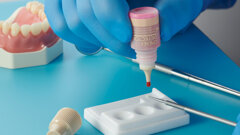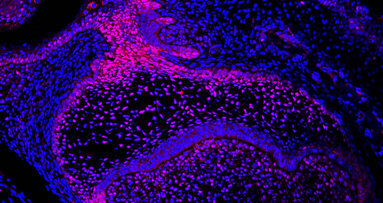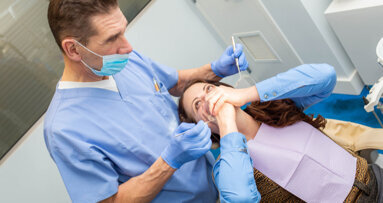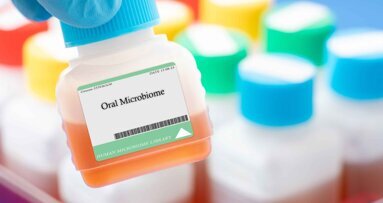VANCOUVER, British Columbia, Canada/COLUMBUS, Ohio, U.S.: The composition of the oral microbiome is critically important in oral health and disease, but the patterns and mechanisms underlying community assembly have not been comprehensively studied. Researchers from the Ohio State University in Columbus have recently filled the existing research gap by examining the composition of the oral bacterial microbiome in a cohort of children evenly distributed between the ages of 1 and 12 years. The results suggest that maturing oral microbial communities in children follow a common pattern.
In total, 252 participants took part in the cross-sectional study. The researchers collected extensive metadata on the participants’ oral and general health, fluoride exposure and oral hygiene habits. They then prepared DNA from saliva and supragingival and subgingival plaque and analyzed factors such as community richness and diversity, species prevalence and relative abundance. They found that species richness increased with age in both supragingival and subgingival plaque and showed an upward trend in saliva. Among the clinical variables they examined, only age, plaque levels and presence of calculus showed a significant effect on microbial community composition.
The data shows that maturing oral microbial communities in children become more complex with advancing age and include a stable core of major species. They also include a shared group of early species that are lost or decrease in abundance with advancing age and another group that is gained with age. The researchers noted that longitudinal data are needed to confirm the results of the study.
The 97th General Session and Exhibition of the International Association for Dental Research, held in conjunction with the 48th Annual Meeting of the American Association for Dental Research and the 43rd Annual Meeting of the Canadian Association for Dental Research, took place on June 19–22 in the West Building of the Vancouver Convention Centre.
An oral presentation of the findings of the study, titled “Assembly of the human oral microbiome age 1 to 12,” was held on June 20, 2019.
Tags:
OKAYAMA, Japan: Since periodontitis has been linked to systemic health conditions, including heart disease, diabetes, cancer and Alzheimer’s disease, ...
LONDON, UK: The concept of regrowing teeth is considered somewhat of a holy grail in dentistry. Though most reptiles and fish have multiple sets of teeth ...
LONDON, UK: Antimicrobial resistance (AMR) influences the success of medical treatment and allows for unhindered diffusion of bacteria. Although antibiotic ...
VANCOUVER, British Columbia, Canada: Dental caries represents one of the most common chronic diseases in young children and is a multifactorial disease. ...
MURADNAGAR, India: Many people with dental anxiety avoid regular visits to the dentist, which in turn can lead to a deterioration in their oral health and ...
JOHANNESBURG, South Africa: For many populations in rural Africa, data on uncompromised development and growth variation is lacking, and researchers ...
LONDON, England: The inextricable relationship between a person’s oral and overall health has the potential to radically transform the dental industry and...
DURBAN, South Africa: As the number of reported cases of children with autism spectrum disorder (ASD) continues to climb across the globe, the special ...
NEW YORK, US: Oral diseases and depression are both projected to rise in prevalence over the coming decades, and recent findings suggest the two may be ...
AACHEN, Germany: Dental care is vital for well-being and overall health but is sometimes neglected because of certain barriers to accessing dental services....
Live webinar
Wed. 25 February 2026
8:00 pm EST (New York)
Live webinar
Tue. 3 March 2026
11:00 am EST (New York)
Dr. Omar Lugo Cirujano Maxilofacial
Live webinar
Tue. 3 March 2026
8:00 pm EST (New York)
Dr. Vasiliki Maseli DDS, MS, EdM
Live webinar
Wed. 4 March 2026
12:00 pm EST (New York)
Munther Sulieman LDS RCS (Eng) BDS (Lond) MSc PhD
Live webinar
Wed. 4 March 2026
1:00 pm EST (New York)
Live webinar
Fri. 6 March 2026
3:00 am EST (New York)
Live webinar
Tue. 10 March 2026
4:00 am EST (New York)
Assoc. Prof. Aaron Davis, Prof. Sarah Baker



 Austria / Österreich
Austria / Österreich
 Bosnia and Herzegovina / Босна и Херцеговина
Bosnia and Herzegovina / Босна и Херцеговина
 Bulgaria / България
Bulgaria / България
 Croatia / Hrvatska
Croatia / Hrvatska
 Czech Republic & Slovakia / Česká republika & Slovensko
Czech Republic & Slovakia / Česká republika & Slovensko
 France / France
France / France
 Germany / Deutschland
Germany / Deutschland
 Greece / ΕΛΛΑΔΑ
Greece / ΕΛΛΑΔΑ
 Hungary / Hungary
Hungary / Hungary
 Italy / Italia
Italy / Italia
 Netherlands / Nederland
Netherlands / Nederland
 Nordic / Nordic
Nordic / Nordic
 Poland / Polska
Poland / Polska
 Portugal / Portugal
Portugal / Portugal
 Romania & Moldova / România & Moldova
Romania & Moldova / România & Moldova
 Slovenia / Slovenija
Slovenia / Slovenija
 Serbia & Montenegro / Србија и Црна Гора
Serbia & Montenegro / Србија и Црна Гора
 Spain / España
Spain / España
 Switzerland / Schweiz
Switzerland / Schweiz
 Turkey / Türkiye
Turkey / Türkiye
 UK & Ireland / UK & Ireland
UK & Ireland / UK & Ireland
 Brazil / Brasil
Brazil / Brasil
 Canada / Canada
Canada / Canada
 Latin America / Latinoamérica
Latin America / Latinoamérica
 USA / USA
USA / USA
 China / 中国
China / 中国
 India / भारत गणराज्य
India / भारत गणराज्य
 Pakistan / Pākistān
Pakistan / Pākistān
 Vietnam / Việt Nam
Vietnam / Việt Nam
 ASEAN / ASEAN
ASEAN / ASEAN
 Israel / מְדִינַת יִשְׂרָאֵל
Israel / מְדִינַת יִשְׂרָאֵל
 Algeria, Morocco & Tunisia / الجزائر والمغرب وتونس
Algeria, Morocco & Tunisia / الجزائر والمغرب وتونس
 Middle East / Middle East
Middle East / Middle East













































To post a reply please login or register